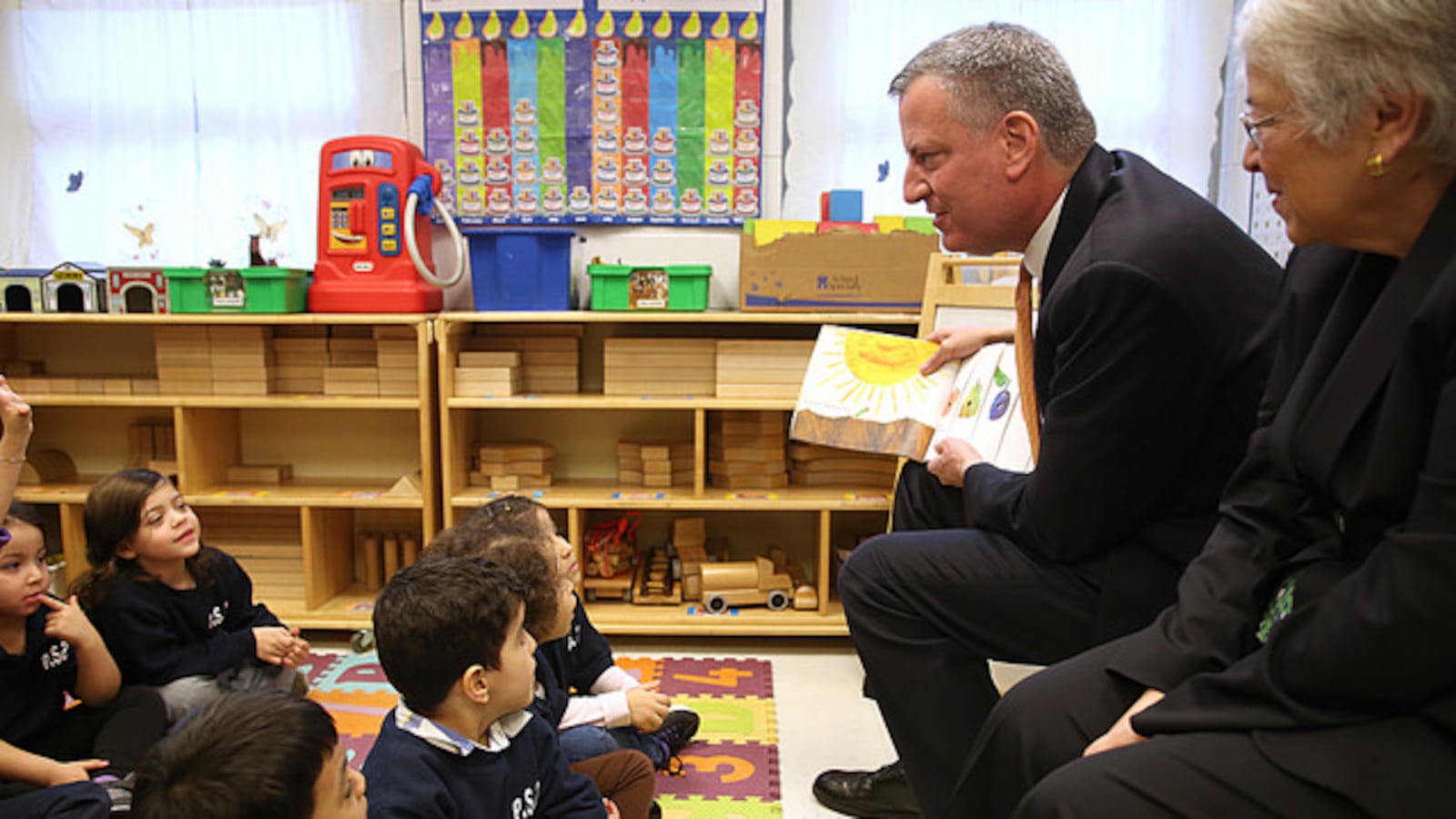The city is racing to allow charter schools to tap into new state funds allotted for its ambitious pre-kindergarten expansion plan. But charter leaders are now waiting for answers to a number of thorny logistical questions that may determine whether they try to open pre-K programs at all.
At issue are how charter schools will get money to pay for pre-K facilities, whether pre-K students will be allowed to skip the admissions lottery to return for kindergarten, and how those pre-K programs will be approved. Those questions were the subject of a meeting last Thursday between city officials and charter school leaders at the Department of Education headquarters.
Those answers are significant, said charter school leaders who attended the meeting, because they were told that the applications for pre-K programs would be released today and due back to the city in just two weeks—as early as May 12. In an acknowledgment that many issues have yet to be ironed out, officials said Sunday that they were now hoping the request for proposals would be released later in the week.
“There’s a lot of unanswered questions, so there was trepidation,” said Kathleen Mone, a member of the board member at Ethical Community Charter School in Bedford-Stuyvesant. “But on the other hand, we all want to help these kids as early as we can.”
Thanks to new laws passed in the state budget deal earlier this month, charter schools are now eligible to provide state-funded pre-K for the first time. And although charter schools had been pushing for months to be able to access the pre-K funding as well, Mayor de Blasio has so far not said much about charter schools’ role in the city’s pre-K push.
Under de Blasio’s plan, the city wants to offer enough full-day pre-K seats for 53,604 four-year-olds this fall, more than twice as many as were available this year. But the city can only tap into $300 million in state funds to pay for once students actually sign up for programs, and the city is moving aggressively to recruit those students.
“The funds come when we have the specific children registered in the specific schools with a specific teacher in it,” schools Chancellor Carmen Fariña said last week. “Money always follows the child.”
Last week, officials announced they received 41,000 applications for public school pre-K programs, a 36 percent increase over last year. That number is twice the number of pre-K seats available in public schools, but it’s still 12,000 under de Blasio’s goal.
The majority of seats will be provided by community-based organizations. But an education department spokeswoman said officials were also eager to allow charter schools to serve students as well.
“The DOE is excited to include charter schools in the historic implementation of universal pre-kindergarten,” spokeswoman Devora Kaye said in a statement.
Kaye said the department was “confident charter schools will play an important role in our first year expansion and add to the many high quality full-day pre-K options for families.”
It’s a further sign that the relationship between the charter school sector and City Hall is on the mend after de Blasio’s cancellation of three charter school co-location plans set off weeks of attacks from advocates that eventually led to legislation that stripped away some of the mayor’s control over how the city allocates facilities for new charter schools.
“They sounded like they were willing to bend over backwards to help us,” Mone said of city officials during the meeting with charter school leaders last week.
But she said for her school, which is co-located in a public school building, the big questions are space and how they would get the funding for the facilities upgrades they need. Officials said they weren’t sure if charter schools that add pre-K programs would eligible to receive city space (or funds for space), as new state laws now require for charter schools that modify their charters to add grade levels.
Another open question is whether students who completed pre-K in a charter school would be entitled to a seat in the school’s kindergarten, which by law is determined through a lottery. If students weren’t allowed to stay with the school automatically, Mone said it would disrupt the school.
There are a small number of community-based organizations, such as Harlem Children’s Zone, that currently operate pre-K programs separately from their charter schools. To ensure that its pre-K students are guaranteed a seat in HCZ’s charter schools, Promise Academy I and II, a spokesman said the schools revised their charters so that lotteries for kindergarten were held when children are just three. That way, they can enroll in a HCZ pre-K program and already be accepted to the charter school.
The spokesman, Marty Lipp, said Harlem Children’s Zone had no plans to switch its system.
Wake up to a comprehensive round-up of New York City education news by signing up for our Rise & Shine newsletter here.

